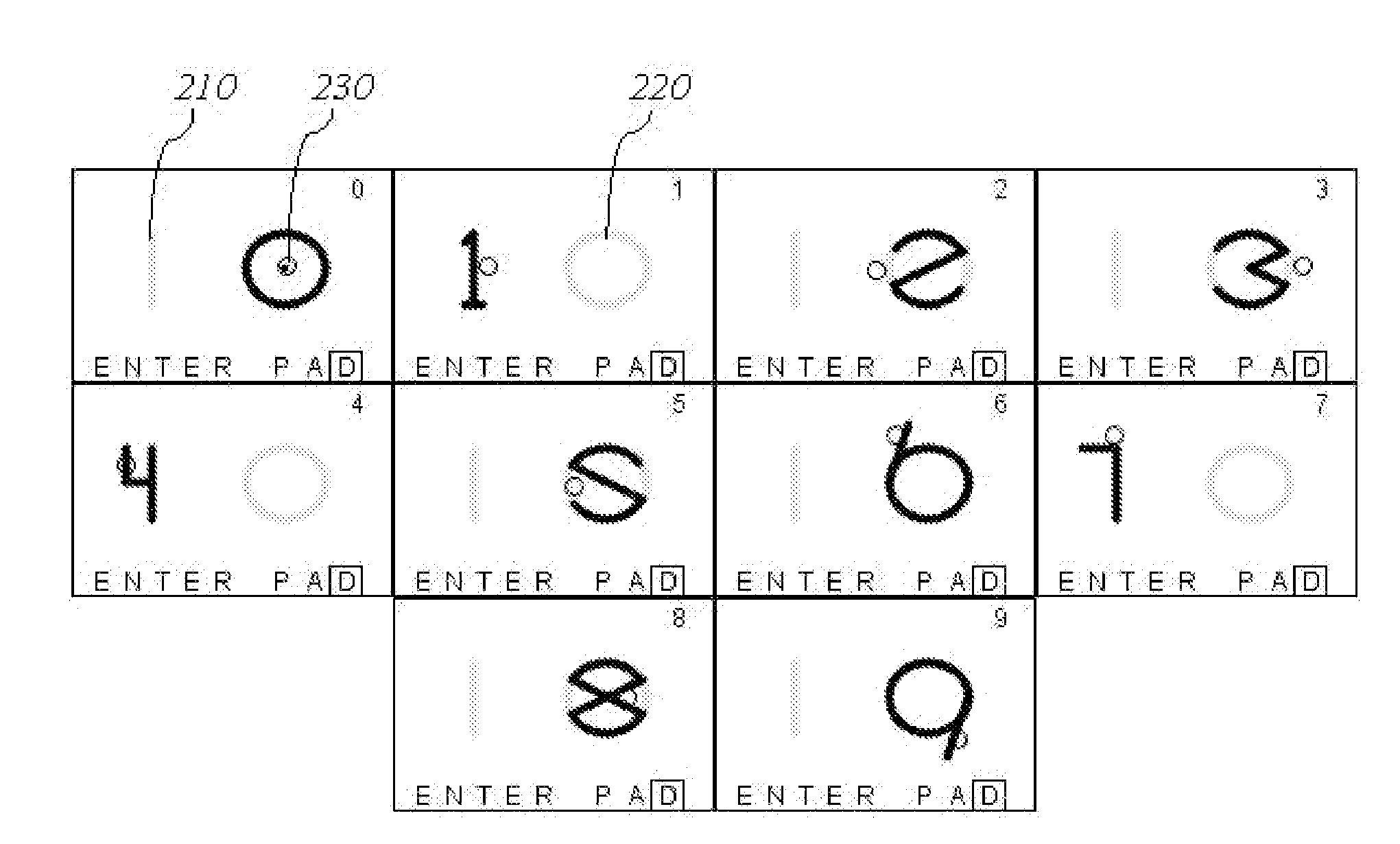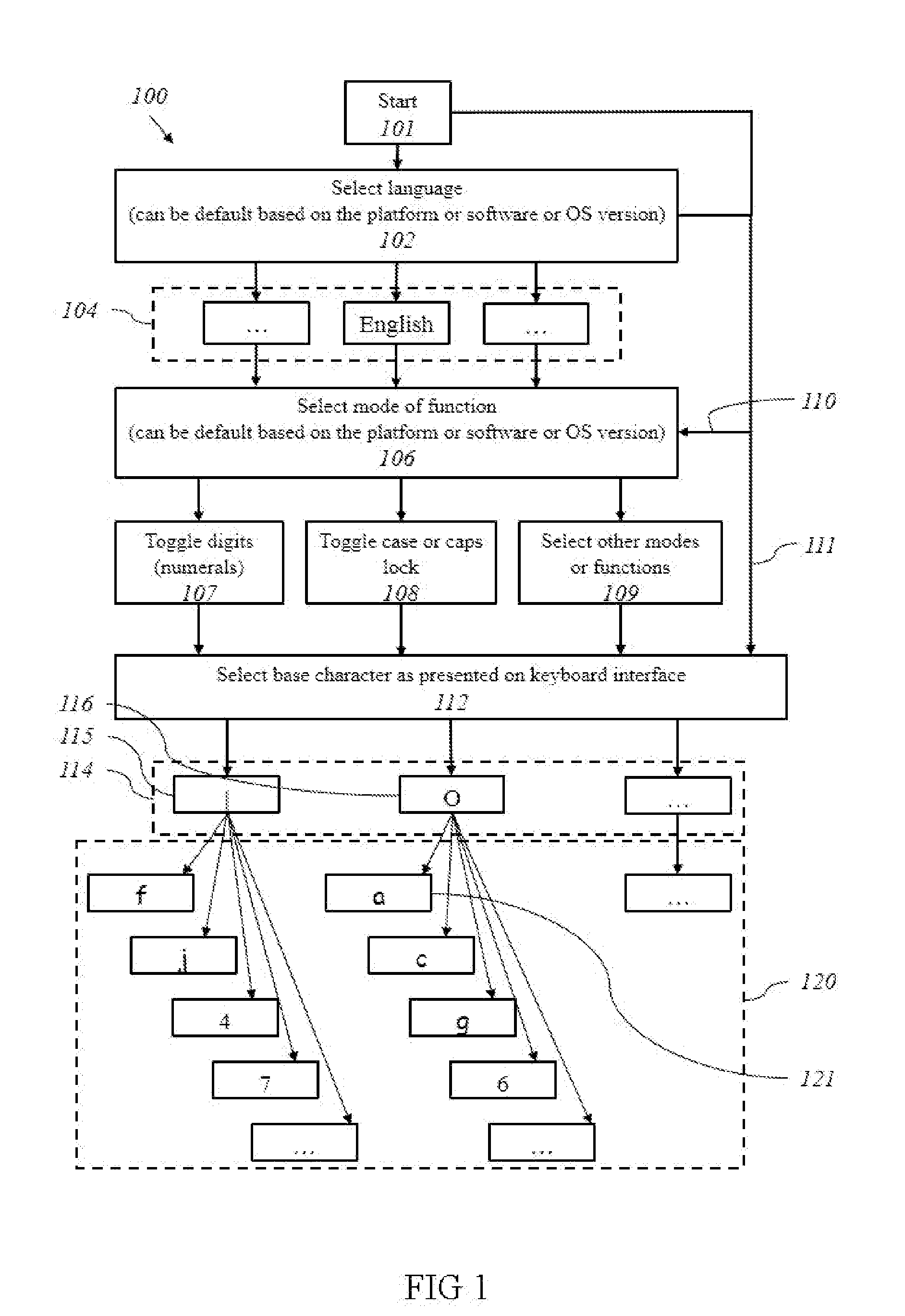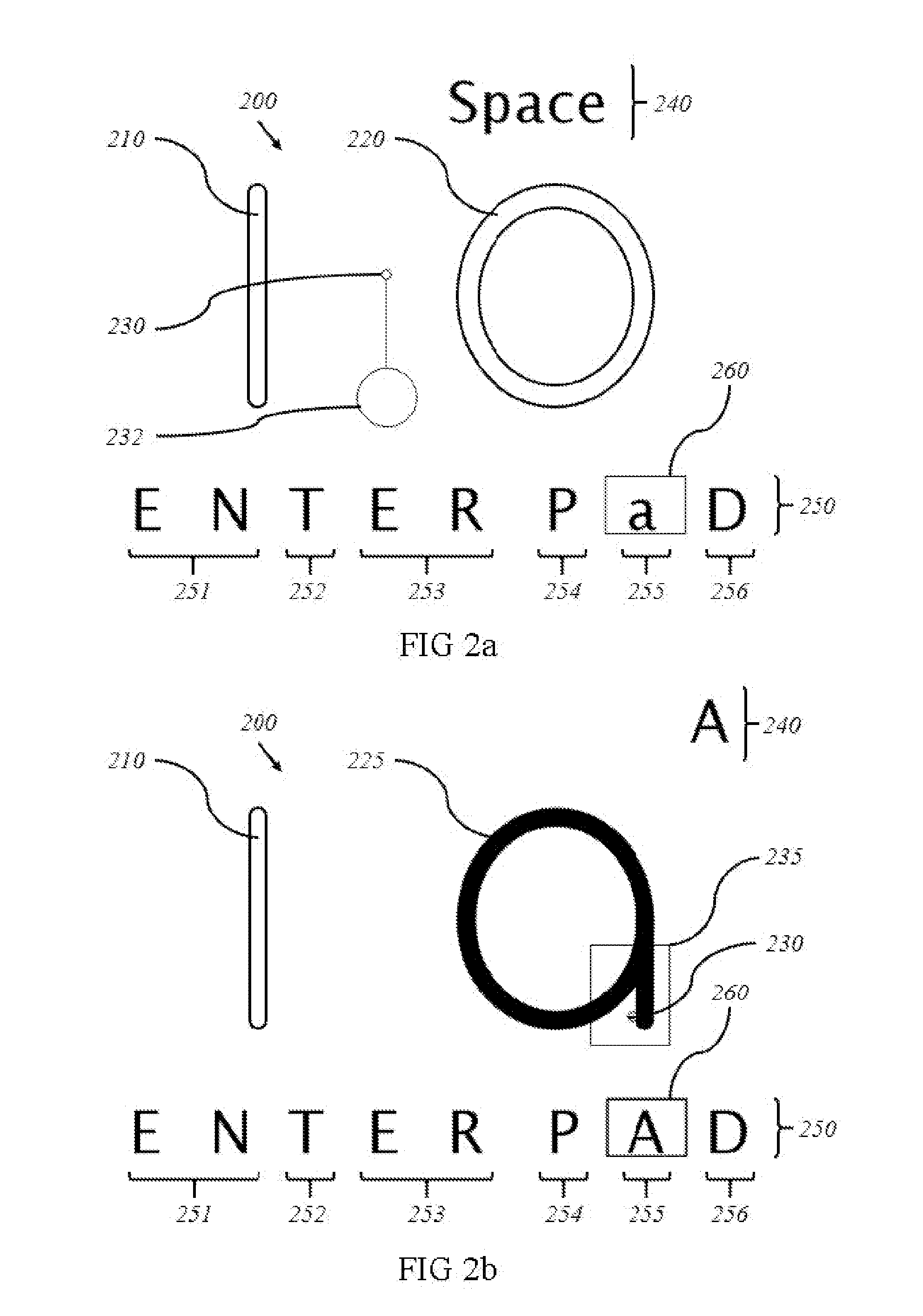Method and system of data entry on a virtual interface
a virtual interface and data entry technology, applied in the field of input characters, can solve the problems of inconvenient design of conventional keyboards, limited use of virtual keyboards, and limited use of keyboards, and achieve the effect of short learning curv
- Summary
- Abstract
- Description
- Claims
- Application Information
AI Technical Summary
Benefits of technology
Problems solved by technology
Method used
Image
Examples
Embodiment Construction
[0023]Reference numerals refer to corresponding parts labeled throughout the accompanying figures. The embodiments described herein pertain to a virtual keyboard interface that can be displayed on a screen within a graphical user interface. The embodiments pertain to methods and apparatuses for one or more of the following steps involved in inputting characters using a virtual keyboard interface: displaying base characters, symbols, or shapes; morphing the base character according to a user's action; previewing an intended character for input; inputting and displaying the final character. In some embodiments, the user generates characters into a text field by moving a mouse pointer or a finger over the displayed area of the interface, which contains predetermined or preprogrammed sections that correspond 1:1 to different characters.
[0024]As used herein, the term “base character” means one of the few shapes or symbols that the user interacts with to generate characters into a text fi...
PUM
 Login to View More
Login to View More Abstract
Description
Claims
Application Information
 Login to View More
Login to View More - R&D
- Intellectual Property
- Life Sciences
- Materials
- Tech Scout
- Unparalleled Data Quality
- Higher Quality Content
- 60% Fewer Hallucinations
Browse by: Latest US Patents, China's latest patents, Technical Efficacy Thesaurus, Application Domain, Technology Topic, Popular Technical Reports.
© 2025 PatSnap. All rights reserved.Legal|Privacy policy|Modern Slavery Act Transparency Statement|Sitemap|About US| Contact US: help@patsnap.com



